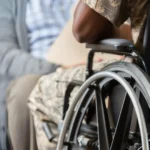The VA offers veterans with borderline disability claims a slight advantage with the Benefit of the Doubt Doctrine.
Summary
- The VA’s Benefit of the Doubt Doctrine, or Reasonable Doubt Rule, directs adjudicators to decide in the veteran’s favor if evidence for and against a disability claim is balanced, helping veterans secure VA benefits in complex cases.
- Veterans should avoid relying solely on the Reasonable Doubt Rule, as VA adjudicators may not always apply it correctly, potentially resulting in unfair claim denials.
- If the VA denies a claim without using the Reasonable Doubt Rule, veterans may appeal to address the oversight.
- The Reasonable Doubt Doctrine helps veterans successfully prove disability claims where submitting direct evidence is challenging.
To “give someone the benefit of the doubt” is a common phrase in American vernacular, but in the context of the VA disability claims process, it has a more specific meaning.
The VA’s Benefit of the Doubt Doctrine serves as guidance for VA claim evaluators when a disability benefits case could justifiably be granted or denied. Under this standard, also referred to as the Reasonable Doubt Rule, the veteran receives disability compensation, despite mixed evidence.
Although the VA’s Reasonable Doubt Rule can help veterans with complex claims secure disability compensation, you shouldn’t exclusively rely on this policy to avoid a VA denial.
Instead, make every effort to build a convincing case for VA disability benefits. If the VA denies your disability claim, don’t hesitate to contact one of our capable and trustworthy VA disability appeals lawyers.
Call VetLaw to schedule a free consultation at (855) 622-5682 or submit a contact form. We’ll explain how the Benefit of the Doubt Doctrine applies to your case, help you gather evidence to establish eligibility, and work to convince the VA you deserve disability benefits.
What is the VA’s Benefit of the Doubt Doctrine?
When evaluating a veterans disability claim, the VA employs a policy known as the Benefit of the Doubt Doctrine, or the Reasonable Doubt Rule. The VA Reasonable Doubt Rule, as outlined in 38 CFR § 3.102, is applicable to the entire VA disability claims process.
The Reasonable Doubt Rule basically states that the VA will decide in the veteran’s favor when their disability benefits claim could go either way.
Applying the Reasonable Doubt Rule
If the amount of concrete evidence supporting your case for VA disability benefits is approximately equal to the evidence opposing your eligibility for disability compensation, then it ultimately becomes a judgment call.
- The Benefit of the Doubt Rule instructs the VA adjudicator how to proceed in these circumstances, reducing the opportunity for individual bias.
So, if the question is whether an in-service event occurred, if it caused your service-connected disability, what your disability rating should be, or whether you developed a secondary condition, the VA is obligated to weigh the evidence, and finding it balanced, grant you disability benefits.
- VA regulations also say that a VA adjudicator can’t ignore the Benefit of the Doubt Doctrine just because they are suspicious of certain evidence.
To justify setting the Reasonable Doubt Rule aside, the rest of the claim would need to be weak and/or the questionable evidence supporting the claim is credibly invalidated by other evidence.
The Role of the Reasonable Doubt Doctrine in Veterans Disability Claims
Although veterans have the responsibility of demonstrating their eligibility to obtain disability compensation, the VA’s Benefit of the Doubt Doctrine acknowledges that definitively proving that military service is the clear cause of an injury or illness is a difficult task under the best of circumstances.
However, veterans filing VA disability claims are rarely operating under ideal conditions. For instance, they may struggle to provide evidence of an in-service incident that occurred during the chaos of combat.
Instead of demanding the VA deny the claim, the Benefit of the Doubt Doctrine makes provisions for cases like this. From the VA’s perspective, giving the Benefit of the Doubt also reduces the number of appeals for borderline claims.
What to Do When the VA Does Not Give Your Claim the Benefit of the Doubt
Unfortunately, VA adjudicators do not always correctly invoke the Reasonable Doubt Rule when assessing veterans disability claims. This can result in an unfair VA claim denial due to the processor’s error.
To secure VA benefits, you may need to file a Supplemental Claim to provide enough evidence to balance your claim. Alternatively, you could request a Higher-Level Review with a more experienced claims evaluator.
If you are considering filing an appeal following a claim denial, then your next step should be to schedule a free consultation with a VA-accredited veteran disability benefits lawyer.
They can provide valuable assistance in gathering concrete evidence to substantiate your VA disability claim and pressuring the VA to apply the Benefit of the Doubt Doctrine. You’ll want to act quickly to avoid missing key deadlines in the appeals process.
Discuss How to Challenge a VA Denial With the Experts at VetLaw
It is risky to rely on the leniency of the Reasonable Doubt Rule or assume that the VA will apply it correctly in your case. Instead, trust the veteran disability benefits attorneys of VetLaw to pursue your case with the VA.
We recognize that many veterans with service-connected disabilities lack the time, resources, or legal understanding necessary to navigate the 2024 VA disability claims process alone, and we are here to help.
At VetLaw, we don’t shy away from challenging VA disability benefits claims because we know our team has the ability to take them on and win compensation for our clients. Schedule a free consultation with VetLaw by calling (855) 622-5682 or filling out a contact form.
Set up a time to learn more about your legal rights from our experienced VA disability claims lawyers, including your right to receive consideration under the Benefit of the Doubt Doctrine. Check out our lawyers and associate attorneys.
Frequently Asked Questions
What does “at least as likely as not” mean in the context of VA disability claims?
“At least as likely as not” is the minimum standard for eligibility that the VA will accept in disability claims. Veterans need to show that their diagnosed medical condition is “at least as likely as not” connected to their military service to obtain VA benefits.
If they are on the line, then the Benefit of the Doubt Doctrine dictates that they receive disability benefits even though the truth of their claim is complicated.
What are the best types of evidence to submit in a veterans disability claim?
Generally speaking, documentation that is relevant and credible is going to be most helpful in a VA disability benefits claim. More specifically, veterans should prioritize their medical records and their military service records as concrete evidence of eligibility.
Ideally, these provide a clear account of how your active duty service is responsible for your illness or injury, and how your health condition impacts your life.
Additionally, you can submit a lay statement from another person, such as a co-worker, as evidence. Their statement can provide further context and perspective to your service-connected disability.
Where can I check the status of my VA disability claim?
By logging into the VA’s website, you can access the current status of your VA claim for disability compensation. If the VA makes a decision regarding your claim, it should be updated here.
Keeping up with your claim’s status means that you can act as soon as possible if you believe the VA failed to apply the Reasonable Doubt Rule in your case.







